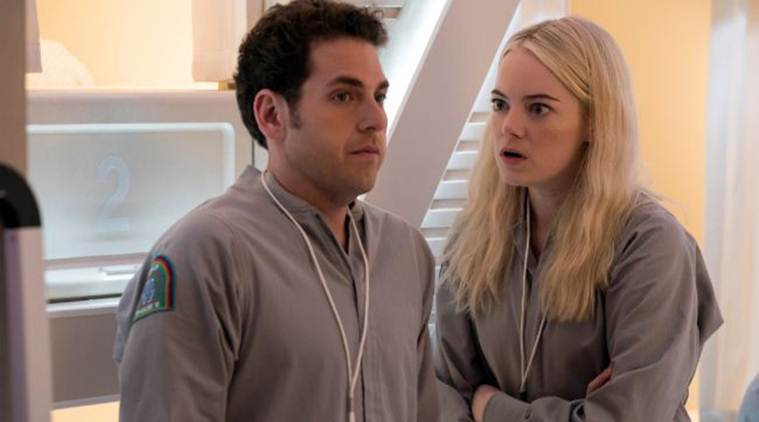 Emma Stone and Jonah Hill in a still from Netflix’s Maniac
Emma Stone and Jonah Hill in a still from Netflix’s Maniac
It is difficult to set Cary Joji Fukunaga’s latest miniseries Maniac into a time frame. The Netflix series’ entire drama unfolds in what appears to be New York, but a New York of the 1980s set in the distant future. The people that inhabit the show, including the lead actors Emma Stone and Jonah Hill, look and dress like people in the 80s, but then you catch a glimpse of the ‘Winged Statue of Liberty’ and there is a self-cleaning tiny machine that picks up roadside trash. A futuristic drama set in the past is probably the phrase that best describes this ‘experiment.’
Just like the show, its lead characters also reside in the past, a painful past. Both Annie (Emma) and Owen (Jonah) are trapped in their memories that appear to them in tragic, pathetic flashes. Owen constantly relives the diagnosis that he might be schizophrenic. Is he or is he not then? And what is ‘real’ anyway? Why do we live and behave the way we do? Why must we grieve and how appropriate it is to live with that grief? For how long? Maniac tackles these questions but doesn’t give you definite answers. And it is not supposed to.
Owen belongs to an affluent New York family but he makes his own living, and to bear that expense, he volunteers to be a part of a psychedelic drug trial that promises to pay him loads whilst solving all his issues. Jonah plays a subdued, mild Owen with subtlety. Maybe a bit too subte. While Annie, on the other hand, is charged up. She takes the lead in everything except maybe in dealing with her excruciating past, in which she takes an unhealthy amount of pleasure. Annie indulges her wound, instead of burying it and moving on. She is stuck. Emma plays Annie with the right mix of pain and pleasure and the result is affecting.
Unlike Fukunaga’s previous series True Detective, Maniac is a combination of the light and dark, much like its lead female character. While True Detective was relentless in its pursuit of the mysterious, Maniac attempts to untangle the mess of the real world. Maniac is therefore messy, but is permeated by a sense of loveliness and longing that one encounters while reading a Haruki Murakami novel or watching Eternal Sunshine of the Spotless Mind for the very first time.